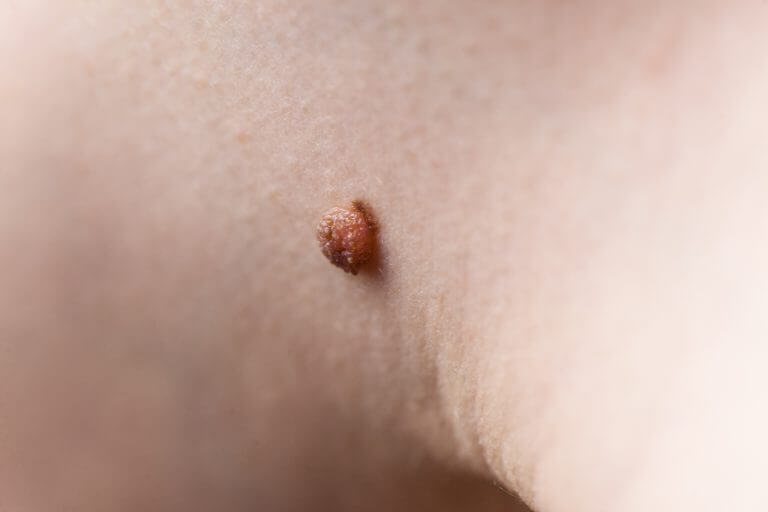What are Skin Tags?
Have you ever noticed a soft, fleshy mole on your skin? It almost looks like a long mole that you can wiggle around. It might be a skin tag.
Many people get skin tags. There can be a genetic link, so you might have inherited them from Mom or Dad. Skin tags more commonly occur in people that are overweight. This trait can also overlap with hypertension and diabetes.
Skin tags typically start to occur in people in their middle ages, even occurring earlier in those that are more susceptible, such as in younger patients who are particularly overweight or have poorly controlled diabetes.
Skin tags most often occur in high-friction areas:
- Around the neck
- Under the arms
- In body folds of the stomach
- The upper inner thighs
However, these locations are not a hard-and-fast rule. Patients can also have skin tags on the face and back, outside of where skin rubs together often.
The most important thing to remember about skin tags is that they are not always a type of skin cancer. These are typically completely benign skin lesions, but it’s important to verify with your dermatologist.
Their presence should also alert the patient to be mindful of body habits and overall health if they are overweight and potentially have hypertension or diabetes. Thus, skin tags could be an early sign of propensity to develop these issues if not previously detected. This could prompt a visit to your primary care physician.
Treatment
Sometimes, skin tags may be in sensitive areas or grow large enough that they can become very irritated or get stuck on clothing, causing pain when pulled.
Even if this occurs, it is almost impossible to have skin tag removal covered by your insurance. Removal of skin tags, even if irritated, is considered a cosmetic procedure by your dermatologist. So, if you want skin tags removed by your dermatologist, you will generally be charged an out of pocket expense.
Before taking action, ask your dermatologist to verify that these are indeed skin tags as, although rare, genital warts and some forms of skin cancer can look similar to skin tags. So, double-check!
About U.S. Dermatology Partners Brodie Lane
At U.S. Dermatology Partners Brodie Lane, formerly Evans Dermatology, our team of medical experts provides the very latest in dermatology care for the entire family, along with state-of-the-art treatment for skin diseases. As the leading treatment center of psoriasis in Central Texas and the largest dermatology practice serving South Austin, Texas we focus on caring for your medical needs including acne, psoriasis, eczema, and skin cancer, while also providing high-quality cosmetic services. Our patients enjoy compassionate and efficient care in our comfortable offices.

